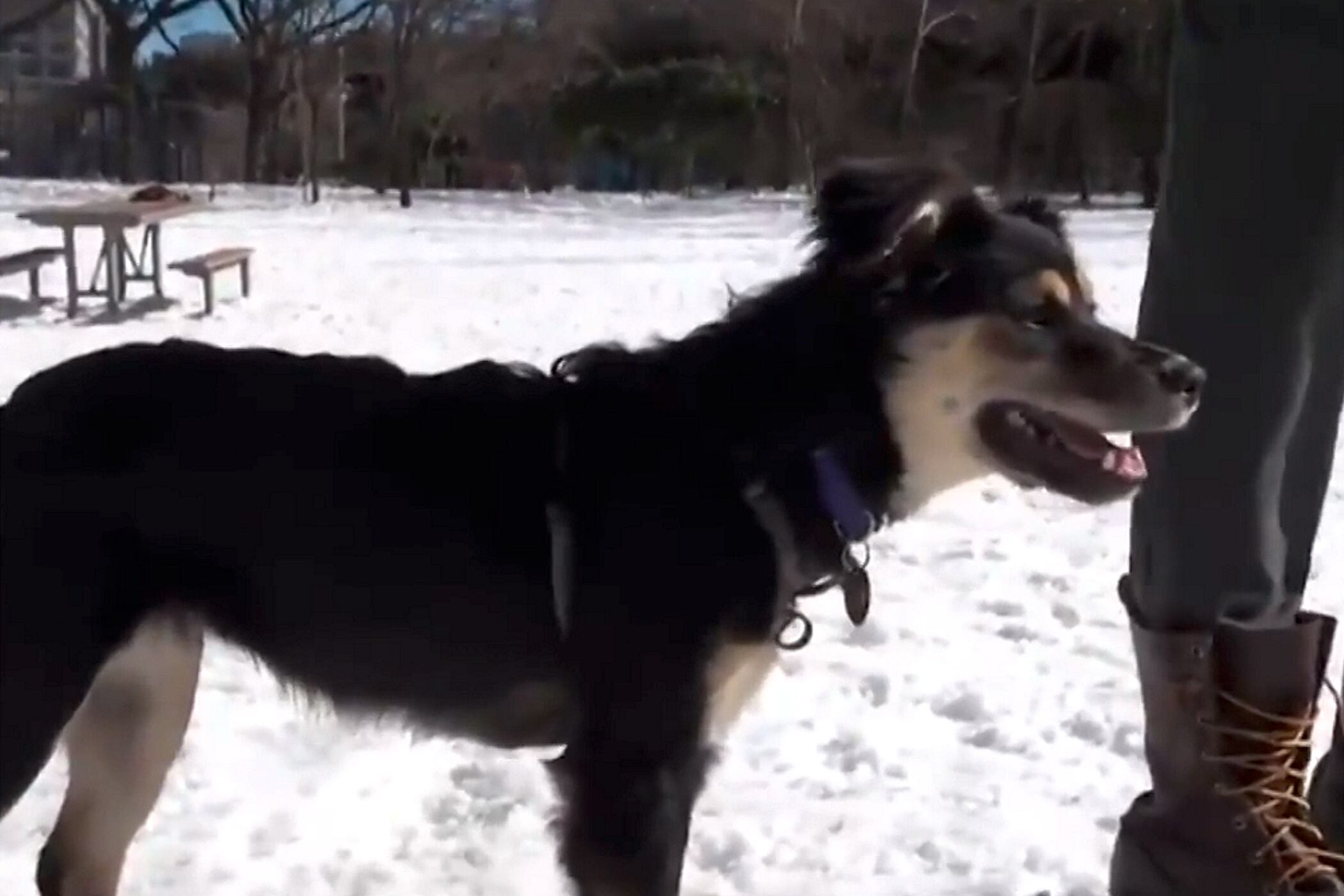Drop by a dog park in Brooklyn, and chances are you'll run into a few new pet owners.
Jake Gofman and his fiancee adopted their puppy, Mishka, from Safe and Sound Satos in October. "She was like a second wave pandemic pup," he said.
Pet owners say their furry friends bring structure to the amorphous days of coronavirus-related lockdowns and company when socializing is discouraged. And more time at home means more time to spend with a brand new puppy.
"It's just a really good time to, to raise a puppy, and to teach them all the right habits, but also to make them very dependent on you, too," joked Gofman, who usually works from home, but said his fiancee also went remote amid the pandemic.
Gofman isn't alone in adopting.
Adoption rates surged in 2020 during the coronavirus pandemic. According to PetPoint, which collects data on animals in shelters, the rate at which pets were rescued from shelters increased 12 percent year-over-year in 2020 after several years of remaining relatively flat or even declining. There is, however, a catch. As shelters struggled to adjust to challenging operating conditions amid the pandemic, intake of dogs and cats fell substantially. In past years, declining intake has translated to a drop in adoption rates, but not in 2020. So while the overall number of pets adopted from shelters may have fallen, the percentage of pets rescued shot up.

Best Friends Animal Society, an animal welfare nonprofit that operates no kill shelters nationwide, saw the effects of this firsthand.
"We saw a dramatic increase in fosters and adoptions across all of our programs. Here in New York City, we saw thousands of adoption surveys come through with people requesting animals," said Best Friends spokesperson Hannah Stember.
One single foster orientation event, conducted online, had more than 1,000 participants, according to Carolyn Fitzgerald, senior program manager of life saving at Best Friends.
"We had complete support from our foster system — from new fosters to old fosters — so much so it was overwhelming that we had more foster houses than we had pets in our program," she said.
Fitzgerald, who fostered five dogs and adopted two amid the pandemic, explained why she thinks it's such a popular trend.
"Animals don't care about COVID. They don't care about if you have a job, if you're you've worked 12 hours, and you're on your 20th Zoom call. They're just like, 'we love you,'" she said. "The pure joy of having them in your life is what's really inspiring people."
The sudden surge of interest in fostering and adopting was good news for Best Friends, which moved all of its resident pets out of shelters and into foster when the pandemic hit. The nonprofit also began migrating many of its operations online, conducting virtual meet-and-greets with potential adopters, and even hosting drive-through kitten adoption events.
But for all the pets who have found new homes amid the coronavirus pandemic, millions more could be rendered homeless as the pandemic rages on.
Housing challenges are the second most common reason people in the U.S. surrender their pets to shelters, and the financial devastation of the coronavirus pandemic has put 30 to 40 million people in 17 million households at risk of losing their homes. If even a fraction of those households own pets — and Best Friends reports that roughly two-thirds of American households do — that's millions of pets that could be heading into shelters. An eviction doesn't automatically mean a family might have to surrender its pets, but Best Friends Animal Society CEO Julie Castle said that in most cases homeless shelters won't allow pets, and pet policies can vary by landlord or when it comes to public housing.
"If somebody gets evicted from an apartment where they have a pet, and then their only option might be housing where pets aren't allowed, there's a member of their family who suddenly is at risk," Castle said. "So what can we do to help curb that?"
Best Friends is tackling this problem a number of ways. The first is by educating people on resources available that might help them keep their pets, like pet food pantries and temporary foster services. The nonprofit offers its support to municipal shelters to increase the odds of a positive outcome for pets surrendered there. They've also begun expanding their own foster networks in an effort to ensure that pets wind up in foster care, rather than in shelters at all. For Best Friends, moving away from the concept of shelters as homes for pets has been a long-term goal, one Castle said the pandemic actually helped to accelerate.
"That is a big transformational change for us to rethink animal shelters not as a brick and mortar facility, but as the community and the community really stepping forward to help with pet homelessness," she said.
The Centers for Disease Control (CDC) issued a federal eviction moratorium in September, and extended it through March 31, 2021, following an executive order from President Joe Biden. The stimulus bill under consideration by House Democrats, also seeks to extend the halt on evictions and includes billions in renter relief, but experts worry it isn't enough, according to Insider. If and when it expires, millions of families — and their pets — could be at risk of homelessness.



